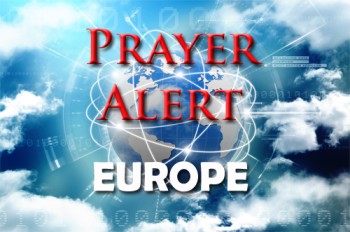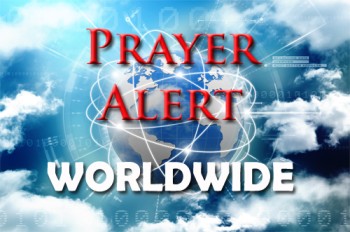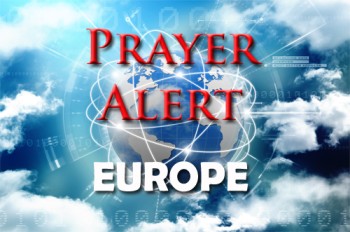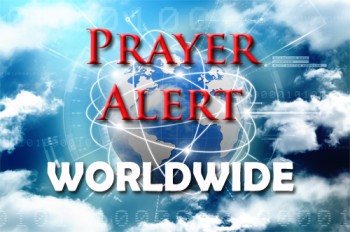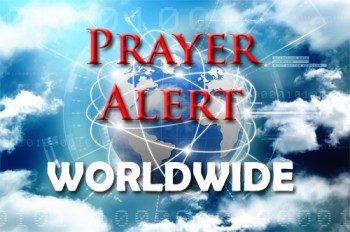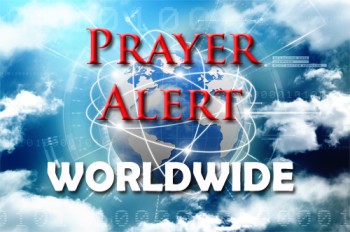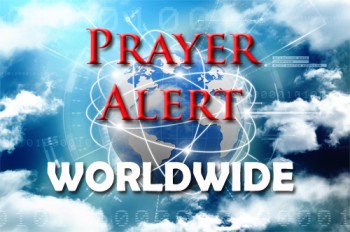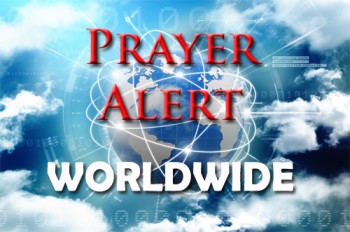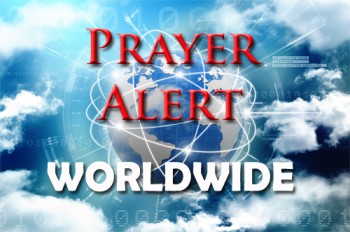Displaying items by tag: protests
France seeks delay to EU-Mercosur trade agreement
France is seeking to delay a vote to ratify the long-negotiated EU–Mercosur trade agreement, arguing it threatens farmers and risks inflaming domestic unrest. The deal with Argentina, Brazil, Paraguay, and Uruguay was concluded a year ago after talks dating back to 1999. Supporters say it would open South American markets to European cars, machinery, and wines at a time of US tariffs and rising Chinese competition. Opponents, led by France, warn that cheaper agricultural imports produced under looser standards could undercut European farmers and encourage environmental harm. Protests are intensifying: as many as 10,000 farmers are expected to descend on Brussels as leaders meet. Although the European Commission has proposed safeguards, Paris calls them insufficient and is urging a postponement to secure stronger protections. The timing of the vote coincides with efforts by Sebastien Lecornu’s minority government to secure parliamentary approval for a budget, including suspending Emmanuel Macron’s controversial pension reform, before the end of 2025. Ursula von der Leyen is due to travel to Brazil on Monday next week to sign the agreement and create the world’s largest free-trade area.
Minneapolis: pepper spray used on protesters against crackdown on Somalis
A confrontation between federal agents and residents in a Somali neighbourhood of Minneapolis has heightened fear and tension within the community. Witnesses reported that ICE agents used pepper spray to disperse a crowd of protesters after checking identifications in restaurants, on the streets, and at a senior housing complex. The crackdown follows the decision by Donald Trump to end temporary protected status for Somalis, calling them ‘garbage’ and saying he does not want them in the country. The move has drawn denunciations from leaders of the Somali community and governor Tim Walz. About 84,000 of the 260,000 Somalis in the country live in the Minneapolis-St Paul area, the overwhelming majority of them US citizens. Over half were born in the U.S., and 87 per cent of those born elsewhere are naturalised citizens. Federal officials justify the operation as targeting criminals, giving details of nine criminals who have been arrested recently, but local leaders argue that such actions unfairly stigmatise an entire community.
Serbia: protesters form human shield against Jared Kushner’s development plans
Thousands of demonstrators in Belgrade have formed a human shield around the bomb-damaged former Yugoslav defence ministry building, vowing to stop its redevelopment into a luxury complex tied to a company owned by Jared Kushner, Donald Trump's son-in-law. The $500 million project, backed by president Aleksandar Vučić’s pro-Trump government, aims to transform the ruins - once bombed by NATO in 1999 - into a hotel and office district. Critics, however, see the move as an affront to national memory, calling the complex a sacred symbol of resistance against foreign aggression. Lawmakers recently fast-tracked legislation to permit construction despite an ongoing criminal investigation into alleged document forgery used to strip the site’s heritage status. The protests, led largely by students and youth movements, echo wider anger over corruption and government control. As chants of defiance echoed through the capital, protesters pledged unity to defend Serbia’s architectural and historical integrity against what they view as political and economic exploitation.
Tanzania: unprecedented level of protest after landslide presidential election
The recent election which saw president Samia Suluhu Hassan win with 98% of the vote has exposed deep cracks in Tanzania’s democratic foundations. The landslide result - achieved amid opposition arrests, media restrictions, and reports of violence - has drawn widespread criticism from observers and foreign governments. What followed was unprecedented in Tanzania’s history: mass youth-led protests erupting across major cities, demanding electoral justice and democratic reform. The unrest reflects a broader generational awakening in Africa, where frustration with corruption, repression, and economic inequality is driving young citizens to demand accountability. With around 77% of the population aged under 35, the country’s future hinges on how leaders respond to this rising tide of civic resistance. Despite the violence and censorship surrounding the protests, they reveal a powerful truth: citizens are no longer content with symbolic democracy. Tanzania’s youth are asserting their right to shape their nation’s destiny. Going forward, the demand for a new constitution should be the priority.
Madagascar: military takeover after president flees
Madagascar has plunged deeper into political turmoil after Colonel Michael Randrianirina announced that the military was seizing control of the nation, moments after parliament voted to impeach president Andry Rajoelina. He said that the armed forces would form a governing council and appoint a civilian-led government, suspending both the constitution and the constitutional court. The move followed weeks of youth-led protests over widespread poverty, power shortages, and corruption (see): a critical moment came on 11 October, when Colonel Randrianirina and soldiers from his elite CAPSAT unit joined the demonstrators and turned against the president. The crisis evokes painful memories of Madagascar’s history of coups, including the 2009 uprising that first brought Rajoelina to power. With 75% of citizens living in poverty, frustrations among the young have erupted into demands for reform and dignity. As soldiers and protesters fill the streets, Madagascar stands at a crossroads between renewed authoritarian rule and the hope for democratic renewal.
Madagascar: protests continue despite government dissolution
Madagascar is facing mounting unrest as protests continue despite president Andry Rajoelina’s decision to dissolve the government. The move, announced on state television, was intended to ease tensions following demonstrations over widespread water and power shortages. Rajoelina expressed sympathy to families of those killed and acknowledged administrative failings, yet protesters remain unsatisfied, demanding his resignation. Many argue that changing ministers is not enough, since the president himself holds ultimate responsibility. The demonstrations, largely led by Gen Z, represent one of the most serious challenges to Rajoelina’s leadership since his 2023 re-election. Authorities have responded with curfews in Antananarivo and other major cities, and police have repeatedly used teargas and fired rubber bullets at demonstrators. The UN has said that at least 22 have been killed and over 100 injured, though the government disputes these figures.
Nepal: the challenges facing new PM
New prime minister Sushila Karki, a former chief justice known for her uncompromising stance against corruption, faces an immense challenge just weeks after taking office. Chosen after huge protests which toppled her predecessor KP Sharma Oli, she has six months to deliver elections and satisfy demands from Nepal’s energised Gen Z movement. Protesters are urging her to arrest senior leaders accused of graft, purge politically connected bureaucrats, and investigate the 74 protest-related deaths. Their support remains conditional, with leaders such as Sudan Gurung warning they will oust her if progress stalls. Karki has pledged an anti-corruption committee and a panel to examine the violence. Yet entrenched party power - especially Oli’s influence as head of the Communist Party - poses obstacles. With youth unemployment above 20% and decades of political instability, Nepal stands at a pivotal moment reminiscent of the 2008 Maoist uprising. Karki must balance swift action and careful diplomacy to prevent renewed turmoil, while proving that democratic reform is possible.
Angola: nobody wants to talk about July protests
In July, protests over fuel price hikes erupted across Angola, paralysing parts of the capital Luanda and spreading to other provinces. Sparked by a taxi drivers’ strike, these demonstrations quickly turned violent, leaving at least thirty dead and thousands arrested. Many residents now fear speaking openly, wary of reprisals. The unrest exposed deep social and economic inequalities in the oil-rich nation, where youth unemployment stands at 54% and over a third of the population survives on less than £1.50 a day. Young people, frustrated by poverty, corruption, and lack of opportunity, led the protests, which sociologists describe as a response to decades of misgovernance since the civil war ended in 2002. President João Lourenço condemned the violence as foreign manipulation but faces criticism for failing to diversify the economy or curb high inflation. As Angola prepares to celebrate fifty years of independence, many fear further unrest before the 2027 elections if systemic issues remain unaddressed.
Nepal: violent protests against corruption and ban on social media
Nepal has been rocked by its most intense unrest in decades, with corruption and nepotism at the heart of nationwide protests. The turmoil escalated dramatically after the government’s controversial ban on social media platforms triggered widespread anger, amplified by resentment over politicians’ wealth and privileges. Though Gen Z activists initially led peaceful demonstrations, they turned violent, leaving at least 29 people dead and parliament, government buildings, and private homes torched. The protesters insist that infiltrators hijacked their movement, a claim supported by the army. While regretting the violence, some are cautiously optimistic that the movement might spark reforms. The army has deployed across Kathmandu, enforcing curfews, manning checkpoints, and inviting protest leaders to talks, while some young people began cleaning debris to show their hope for change. Whether the movement will lead to accountability and new leadership, or simply further instability, remains to be seen.
67 people charged over Palestine Action support
The Metropolitan Police have confirmed that 67 people have been charged under section 13 of the Terrorism Act for allegedly showing support for Palestine Action, a proscribed organisation. Those charged, aged between 21 and 83, were arrested during central London protests on 5 and 12 July. They face a maximum sentence of six months’ imprisonment and are due to appear for trial in September and October. Since the group’s proscription on 5 July, more than 700 arrests have been made nationwide. Critics argue the ban infringes free speech, but Yvette Cooper insists Palestine Action has been responsible for serious crimes, including aggravated burglary and violent disorder. Commander Dominic Murphy rejected claims that protests had stretched police resources, stressing that law enforcement remained robust. The group has been granted permission to challenge the ban in the High Court in November, setting up a legal battle over the boundaries between protest and terrorism.
